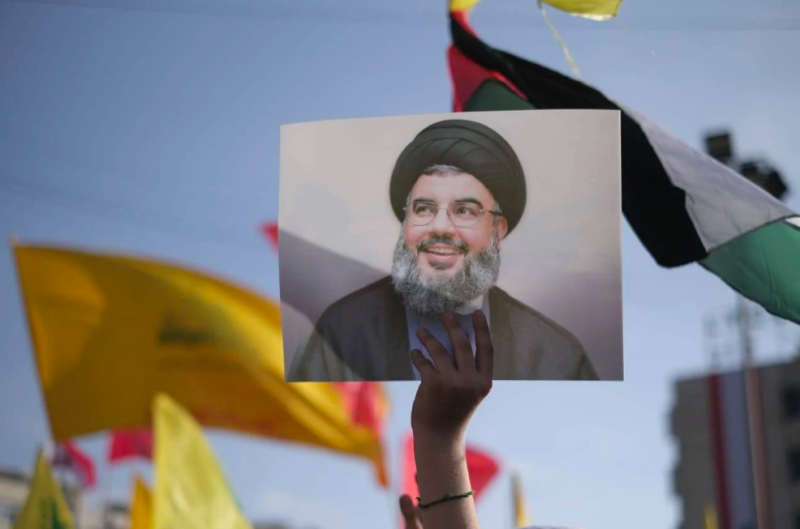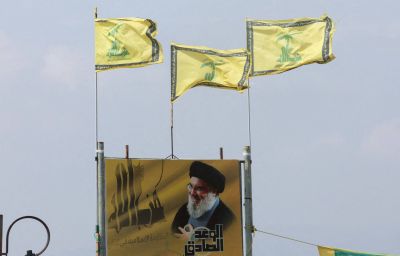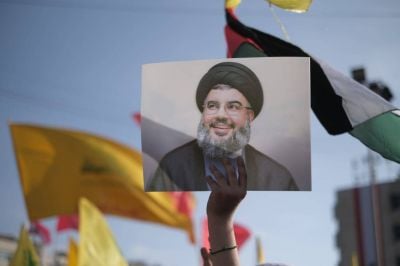
Photo of Hassan Nasrallah held up on Nov. 3 in the southern suburbs of Beirut, during the Hezbollah leader's speech. (Credit: Joao Sousa/L'Orient-Le Jour)
Hezbollah Secretary-General Hassan Nasrallah's speech, which was widely anticipated for weeks as a potential turning point in the sequence that began on Oct.7, was not what many thought it would be.
One could expect Hassan Nasrallah to remain vague, but the Secretary-General made a few strong statements in a long and ultimately uneventful speech. Beyond the usual anti-imperialist and anti-Zionist rhetoric, the speech highlighted Hezbollah and Iran's desire not to get further involved, at least for the moment, in the war between Israel and Hamas.
Here are the four main points to remember:
• The leader of Hezbollah distanced himself from the "Al-Aqsa flood" operation, claiming that it was one hundred percent Palestinian and that not even Hamas allies had been informed.
While several media outlets, including L'Orient-Le Jour, revealed that the operation had been prepared in Beirut with the help of the Pasdaran and Hezbollah, Nasrallah clearly wished to deny any responsibility for the affair on the part of either his party or Iran.
The objective is clear: Iran and Hezbollah must not feel compelled to intervene in this war on a larger scale.
Hassan Nasrallah implied that he was not comfortable with the Oct.7 attack, even accusing enemy soldiers of being responsible for the deaths of Israeli civilians.
• While he might have been expected to speak as commander-in-chief of the "Axis of Resistance", Nasrallah drew a clear distinction between what happened on Oct. 7, which is the responsibility of Hamas, and the attacks by Iran's allies, in support of Hamas, since Oct. 8.
While he spoke for the Palestinian cause throughout his speech, he spoke on behalf of the Houthis, Iraqi Shiite militias and sometimes even Iran, but never on behalf of Hamas. Notably, he never once mentioned Syria, which might suggest that instructions had been given to leave the Syrian regime out of this battle.
• The main issue at stake in the speech was how precise Nasrallah's threat of Hezbollah intervention would be. The party's secretary-general remained rather vague. He said that all options were on the table, depending on developments in Gaza and a possible Israeli attack on Lebanon.
Nasrallah repeatedly stressed the limits of the Israeli offensive on Gaza. His speech is partly based on this observation, since as things stand, Iran is still the big winner of the sequence. If the Israeli army were to seriously endanger Hamas in Gaza, this would put Hezbollah in a difficult position. Even if it hasn't clearly linked its fate to that of Hamas, will Hezbollah be able to watch its ally "die" without reacting?
• The final important point of the speech concerned the party's heavy losses (57 fighters) in a war that has yet to be called a war. Nasrallah insisted that Hezbollah has indeed been at war since Oct. 8, and that its martyrs have sacrificed themselves for the noblest of causes. He said that one third of the Israeli forces are mobilized to fight against Hezbollah, dividing Israel's focus and acting as a support front for Gaza.

